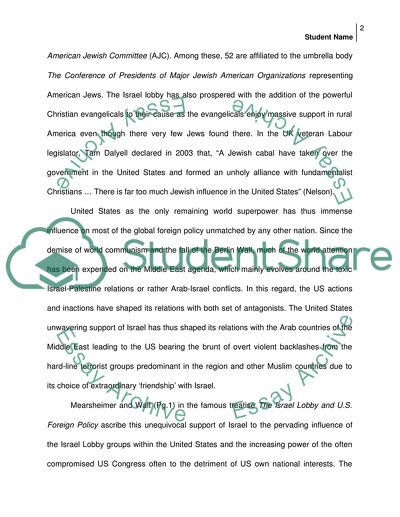Cite this document
(One of the Most Powerful Interest Groups in the US Capital Washington Research Proposal, n.d.)
One of the Most Powerful Interest Groups in the US Capital Washington Research Proposal. Retrieved from https://studentshare.org/religion-and-theology/1561417-how-the-jewish-american-lobby-influences-congress-on-us-foreigh-policy-towards-israel
One of the Most Powerful Interest Groups in the US Capital Washington Research Proposal. Retrieved from https://studentshare.org/religion-and-theology/1561417-how-the-jewish-american-lobby-influences-congress-on-us-foreigh-policy-towards-israel
(One of the Most Powerful Interest Groups in the US Capital Washington Research Proposal)
One of the Most Powerful Interest Groups in the US Capital Washington Research Proposal. https://studentshare.org/religion-and-theology/1561417-how-the-jewish-american-lobby-influences-congress-on-us-foreigh-policy-towards-israel.
One of the Most Powerful Interest Groups in the US Capital Washington Research Proposal. https://studentshare.org/religion-and-theology/1561417-how-the-jewish-american-lobby-influences-congress-on-us-foreigh-policy-towards-israel.
“One of the Most Powerful Interest Groups in the US Capital Washington Research Proposal”, n.d. https://studentshare.org/religion-and-theology/1561417-how-the-jewish-american-lobby-influences-congress-on-us-foreigh-policy-towards-israel.


